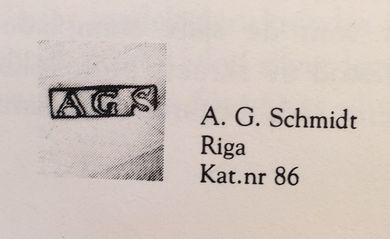




??? AGS on the photo is August GOTTFRIED Schmidt 1815-1833 and not Heinrich. Let's skip this master. He is too old.
I have always believed that this forum was intended for discussion of silver products and hallmarks on them. but not for expression political views. It's time for you to understand this!AG2012 wrote: ↑Mon Feb 05, 2024 11:01 am Where is the logic discussing an obviously East Prussian silversmith working in Latvia under Russian occupation, i.e. under colonial rule ? Compare with e.g. magnificent Nigerian and Mali art, fetching high prices at auctions, but never classified as British or French artifacts.
I thought that you were just funny, but you were also very smart, you read Aristotle (possibly). An excited brain needs to be fed. I propose to reconsider the attributions of St. Petersburg silversmiths, because there are doubts about the legality of the city’s origins. Return everyone (Faberge, Vyakeva, Rapoport, Butz, etc.) to their homeland! And Moscow silversmiths too, because it is not very clear on whose land the city was founded. And Tobolsk, and Tomsk and other cities. It is necessary to name all silversmiths by their place of birth in accordance, for example, with maps of the 13th century. You have given birth to a brilliant idea! If this is possible, then make a list for us so that we can understand which silversmiths should be recorded in which country and what nationality they should be considered to be.